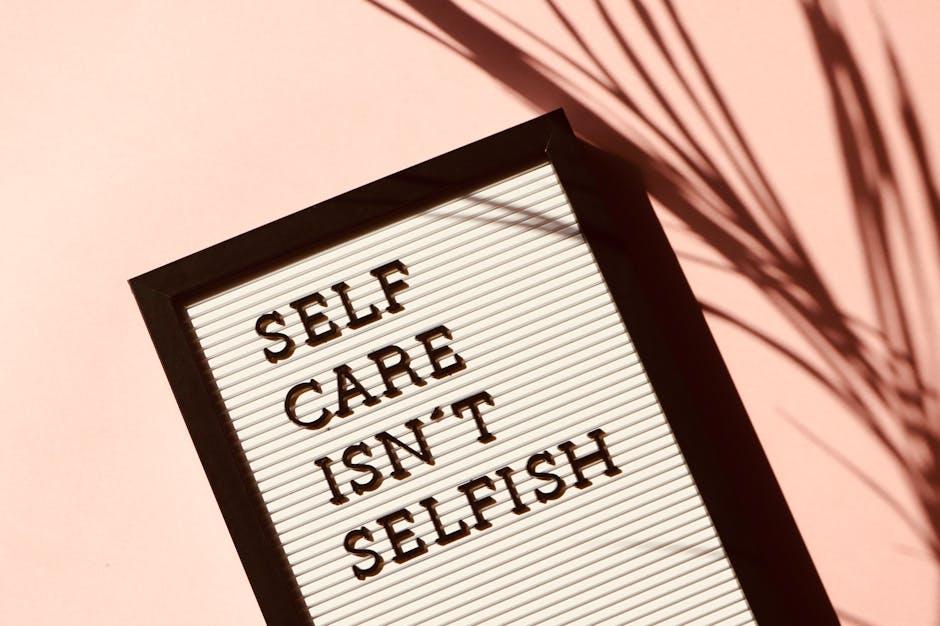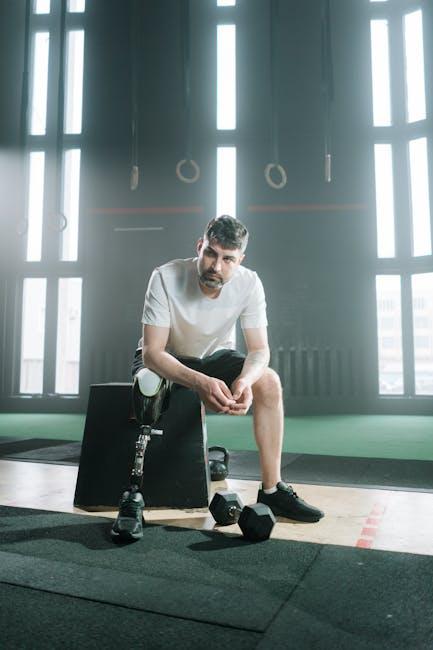In a world where spotlight often shines brightest on fame and fortune, a quieter, more profound narrative is emerging from the lives of celebrities: their journeys with mental health. Behind the glitz and glamour, stars are stepping forward to share stories of struggle, resilience, and hope—challenging stigma and reshaping public conversations. This article delves into the candid revelations of well-known figures who, through their openness, are transforming how society understands and embraces mental well-being.
Table of Contents
- Celebrities Breaking the Silence on Mental Health
- Personal Stories That Illuminate the Struggle
- How Fame Amplifies Mental Health Challenges
- The Role of Advocacy in Changing Public Perception
- Practical Strategies Celebrities Use to Cope
- Resources and Support Inspired by Celebrity Voices
- Q&A
- In Retrospect

Celebrities Breaking the Silence on Mental Health
When prominent figures share their struggles with mental health, it creates a ripple effect of awareness and empathy worldwide. Stars like Lady Gaga and Ryan Reynolds have candidly discussed their battles, demonstrating that vulnerability is a strength, not a stigma. Their openness helps dismantle long-standing taboos and encourages fans to seek support without fear of judgment.
Beyond interviews and social media, many celebrities now actively participate in campaigns and foundations dedicated to mental wellness. Their contributions include:
- Hosting mental health workshops for young people
- Creating informative documentaries to educate the public
- Partnering with nonprofits to expand access to therapy
- Sharing personal coping techniques openly
| Celebrity | Advocacy Focus | Notable Action |
|---|---|---|
| Zendaya | Anxiety Awareness | Public service announcements |
| Dwayne Johnson | Depression Education | Documentary narration |
| Selena Gomez | Therapy Normalization | Social media campaigns |

Personal Stories That Illuminate the Struggle

How Fame Amplifies Mental Health Challenges
Living in the limelight magnifies every emotional experience, turning private struggles into public spectacles. Celebrities often face relentless scrutiny, where even a minor lapse can escalate into viral headlines. This pressure cooker environment intensifies feelings of isolation, anxiety, and depression, creating an emotional paradox: surrounded by millions yet profoundly alone. The constant demand to uphold a flawless image forces many to mask their vulnerabilities, making it harder to seek help or speak out openly.
Some unique factors contributing to this amplified mental strain include:
- Intrusive paparazzi and a loss of personal privacy
- Social media’s unfiltered criticism and instant judgment
- Pressure to maintain a perfect public persona
- Unrealistic expectations from fans and industry insiders
| Factor | Impact on Mental Health |
|---|---|
| Privacy Invasion | Heightened anxiety and stress |
| Public Judgment | Low self-esteem and self-doubt |
| Performance Pressure | Burnout and chronic exhaustion |
| Fan Expectations | Fear of failure and isolation |

The Role of Advocacy in Changing Public Perception
Advocacy efforts led by public figures have significantly shifted the narrative surrounding mental health, breaking down stigmas that once kept conversations in the shadows. When celebrities share their personal battles, they humanize these issues, making them more relatable and less intimidating for the public. Their visibility encourages open dialogue, fostering an environment where seeking help is regarded as a strength rather than a weakness. This cultural shift is instrumental in dismantling long-standing prejudices and creating a supportive community for those affected.
Key elements of successful advocacy include:
- Authenticity: Genuine stories from influencers resonate deeply with diverse audiences.
- Consistency: Regular engagement keeps mental health in public consciousness beyond fleeting trends.
- Accessibility: Providing resources and information alongside personal testimonies ensures audiences know where to turn for help.
| Advocacy Impact | Resulting Change |
|---|---|
| Celebrity Campaigns | Increase in public awareness |
| Social Media Conversations | Normalization of mental health topics |
| Charity Partnerships | Funding for mental health services |
| Documented Personal Experiences | Reduction in stigma |

Practical Strategies Celebrities Use to Cope
Behind the glamour and flashing cameras, many celebrities adopt mindful practices that ground them amidst the chaos. Meditation and deep breathing exercises are frequently mentioned as key tools for maintaining mental clarity and emotional balance. Others swear by a strict routine that includes regular exercise and wholesome nutrition, understanding that physical health directly influences mental wellbeing. Additionally, setting firm boundaries—whether it’s limiting social media time or carving out days without work engagements—helps them preserve a sense of normalcy and personal space.
Support systems play an equally crucial role in their coping mechanisms. Trusted friends, family, and professional therapists offer a confidential outlet where emotions can be expressed without judgment. Some stars have even embraced creative therapies like art, music, and writing to explore and communicate their feelings. Below is a quick look at a few common strategies and their benefits:
| Strategy | Benefit |
|---|---|
| Mindfulness Meditation | Reduces anxiety and promotes calm |
| Physical Exercise | Boosts mood and increases energy |
| Professional Therapy | Provides expert guidance and coping tools |
| Creative Outlets | Enhances emotional expression and release |

Resources and Support Inspired by Celebrity Voices
Many celebrities have transformed their personal journeys into powerful beacons of hope, encouraging others to break the stigma surrounding mental health. Their openness has inspired an array of accessible resources tailored to varied needs—from therapy apps championed by actors to meditation practices promoted by musicians. By leveraging their platforms, these voices invite us all to explore support avenues with confidence and compassion. Below are some trusted resources many public figures recommend:
- Calm App: Used by multiple stars to practice mindfulness and reduce anxiety.
- BetterHelp: Online counseling that offers anonymity and convenience.
- Crisis Text Line: A free, 24/7 support network accessible via text message.
To help navigate these options, here’s a quick guide showcasing how some celebrity-endorsed tools match different moods and challenges, streamlining your path to support:
| Resource | Best For | Celebrity Endorsement |
|---|---|---|
| Calm App | Stress Relief & Sleep | Ariana Grande |
| BetterHelp | Therapy Access | Selena Gomez |
| Crisis Text Line | Immediate Help | Lady Gaga |
Q&A
Q&A: Celebrities Open Up About Mental Health
Q: Why are celebrities speaking openly about mental health now more than ever?
A: Celebrities are leveraging their platforms to break long-standing stigmas around mental health. By sharing personal experiences, they create a ripple effect, encouraging fans and the broader public to acknowledge and address their own mental well-being without shame.
Q: How do celebrities’ stories impact public perception of mental health?
A: When well-known figures discuss struggles with anxiety, depression, or other conditions, it humanizes these experiences. It shifts mental health from an abstract or taboo topic to something relatable, fostering empathy and greater societal acceptance.
Q: Are there risks involved for celebrities who go public with their mental health challenges?
A: Absolutely. Vulnerability invites scrutiny, and celebrities may face media sensationalism or misinterpretation. Nevertheless, many consider the positive influence on awareness and the normalization of mental health conversations worth the potential personal exposure.
Q: What types of mental health issues are celebrities most commonly discussing?
A: Anxiety and depression are frequently addressed, but there’s also rising visibility of bipolar disorder, PTSD, eating disorders, and substance use challenges. This wide range reflects how mental health affects people across all walks of life.
Q: How has social media played a role in this shift?
A: Social media provides direct access to audiences, allowing celebrities to share unfiltered thoughts and updates. It also enables real-time conversations, support communities, and the spreading of mental health resources faster than traditional channels.
Q: What can the average person learn from celebrity mental health disclosures?
A: The key takeaway is that mental health struggles do not discriminate by fame or fortune. Recognizing that even those seemingly “on top of the world” face challenges can motivate individuals to seek help, practice self-care, and support others.
Q: Is this openness around mental health a passing trend or a lasting change?
A: While cultural shifts take time, the growing momentum suggests a lasting transformation. As more celebrities and public figures continue to vocalize their experiences, mental health conversation is moving steadily into mainstream acceptance and policy advocacy.
Q: How can society better support mental health beyond celebrity advocacy?
A: Public education, accessible treatment, workplace accommodations, and equitable funding for mental health services form the foundation. Celebrity stories can spark awareness, but systemic change relies on collective action and infrastructure improvements.
This Q&A explores how the candid voices of celebrities are influencing the modern dialogue on mental health, bridging gaps between personal struggle and collective understanding.
In Retrospect
As the spotlight fades and the cameras turn away, the honest voices of celebrities sharing their mental health journeys continue to resonate beyond the glitz and glamour. Their openness not only dismantles stigma but also reminds us all that behind every public persona lies a deeply human story. In embracing vulnerability, they invite us into a collective conversation—one where empathy replaces judgment and understanding becomes the common ground. Ultimately, these stories illuminate a simple truth: mental health is a universal experience, deserving of compassion and care, no matter who we are.

